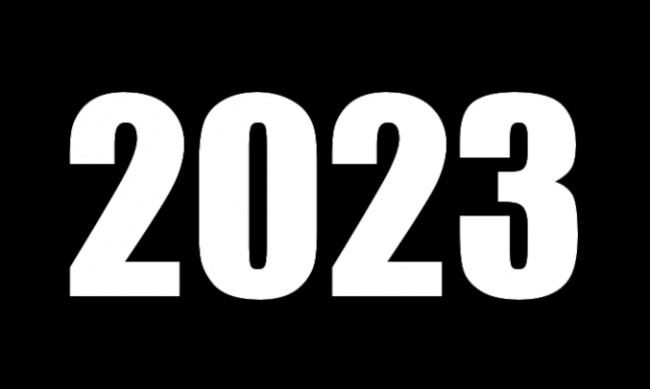Before we get to the bullet points, a quick observation. It seems to me that, overall, the business of making, publishing, distributing and selling comics and graphic novels got to a pretty good place in 2021-2022, despite all kinds of headwinds and issues with individual companies. The trouble is, that specific industry is tied closely to other businesses and economic conditions that are not nearly so healthy, and things are likely going to get worse next year as the impact of interest rate hikes, stock market stumbles, political gridlock and other broad systemic factors start to bite. Most of my gloomier forecasts are tied to those factors, and if the overall climate ends up better than anticipated, we’re probably in for another good year.
That said, here are my top items to watch for.
UGC platforms proliferate. When a company achieves the kind of success that Webtoon has seen, first in its home markets in Asia, and lately in America and worldwide, it tends to draw a crowd. There’s a lot to like about the way Webtoon enables creators to post their work, build an audience, reach scale, and then move into other opportunities like media and licensing (see "Pro Video: Webtoon’s David Lee with Rob Salkowitz"). And a lot of new business plans developed over the last couple of years mimicking aspects of this strategy are likely to come to market in 2023 and beyond.
There are also some rumblings of discontent rippling through the creator community about Webtoon’s specific practices and transparency (see "Top Comic On Webtoon Won’t Return for a New Season"), which could provide an opening for prospective competitors. There’s already room in the market for brands that offer the same basic format and model, but that are not so heavily linked to the younger, female-heavy demographic and manga-oriented style. Even with a poorer business and startup climate than we’ve seen in a while, expect some action in this space.
Streaming slowdown cripples entertainment-oriented business plans. Here’s a trend that suggests less of a crystal ball and more of a wrecking ball. When Netflix’s subscription growth stumbled in early 2022, it set in motion a domino effect that brought most of the big investments in streaming content from major players to a screeching halt. There’s still plenty in the pipeline, but a lot of projects have been scrapped and front-end deals have completely dried up. Two companies particularly hard hit, for slightly different reasons, were WarnerMedia Discovery and Walt Disney, the corporate parents of DC and Marvel, respectively.
A number of comics companies came to market in the past decade with publishing strategies meant to grease the wheels for bigger ticket media deals, and those companies are likely to be in big trouble if they have to make it purely on the tiny profits found in lower-mid tier periodical publishing. We’ve already seen the front end of that as 2022 came to a close (see "AfterShock Comics, Rive Gauche Television File for Bankruptcy") and more will follow in 2023. That might make retailers’ jobs a little easier, not having to worry about having so much middling-level inventory on the shelf, but it’s bad for creators, conventions (fewer exhibitors), and bad for the industry if comics are no longer seen as prime IP for bigger development deals.
Tortoises outrace hares. It’s not just the media-oriented publishers that are at risk as external conditions change, it’s every company in the space that’s taken on a lot of outside investment. When interest rates were near zero, anything promising a return looked good. But now, a bunch of money that came into comics and nerd culture is going to be a lot less patient, especially if it came from places that saw big reverses in 2022 such as tech, blockchain, media/entertainment, and troubled overseas markets.
So who wins in that scenario? I’d say it’s the smaller companies that opted to bootstrap their way into the market on small capital raises, or investment rounds from friends and family. Zoop, Global Comix, Z2 and Clover Press, for example, appear willing to build their markets organically rather than race to scale, and that’s looking like the right strategy for 2023. Further up the market share chart, a company like Dynamite Entertainment that sticks to its strengths and maintains closely-held ownership strikes me as less vulnerable than similar-tier competitors that took a lot of outside investment or tried to buy their way into the market too aggressively.
Impact of AI hits the comics biz. At the close of 2022, we saw the arts community up in arms about the impact of AI-based art generation systems like Midjourney and Dall-E, which trained their systems on data without permission and now threaten the livelihoods of many of the artists whose consent they failed to obtain. Currently, AI art tools are better at single images than sequential storytelling, and it may be a couple of years before they master the complexities of the comics page. However, they are clearly poised to decimate the ranks of commercial artists doing character designs, concept art, environmental design/backgrounds, posters, illustrations and other single-image work.
As artists employed in film and media, videogame development, game cards, advertising and other fields start to lose their jobs, they may look to get into comics, making an already competitive labor market that much tighter.
Writers may also need to start worrying. I’ve been playing around with OpenAI’s ChatGPT, which turns out to be scary-good at developing well-structured stories from very simple premises. In fact, the AI is so good that I asked it to write this column in the style of Rob Salkowitz, and I’ll bet most of you couldn’t even tell the difference!
The verdict of history. Before you take any of this as holy writ, I’m obliged to disclose that my crystal ball may be in need of repair given my track record from last year (see "What’s Ahead for the Comics Business in 2022"). Here were my big calls for the business then:
- More creative licensed projects coming into comics from elsewhere in the entertainment/media world – essentially along the lines of BRZRKR or Z2’s model. I wasn’t wrong that it was happening, but it wasn’t as big a deal as I thought.
- Financialization of collectibles – that is, bunding comics into mutual fund-like financial vehicles that people could invest in without having super deep knowledge of comics history. If this was more than a niche thing in 2022, I didn’t hear about it, and I think the window has closed on it for the time being.
- NFTs become more integrated into creative strategies. Well, if by "creative," I meant "creative accounting," then, yeah, totally nailed it. In all other ways, swing and a miss. Glad I didn’t put my money where my mouth was.
- UGC everywhere, expecting a massive acceleration of the Wattpad/Webtoon strategy. Since I doubled down on this bet for next year (see above), I still think it’s happening sooner or later. 2022 might have been a little too early, although Tapas’s massive pivot from professionally-generated content to pure-play UGC over the summer (see "Tapas CEO Chang Kim on the Company’s Pivot Away from Original Content") suggested some people also see this coming.
Happy new year everyone! Here’s to a happy and healthy 2023!
NOTE: in this column, Salkowitz suggested that he had used a chatbot to write the story in his style. That was meant in jest. He wrote this the old fashioned way and plans to continue doing so.
The opinions expressed in this column are solely those of the writer, and do not necessarily reflect the views of the editorial staff of ICv2.com.
Rob Salkowitz (@robsalk) is the author of Comic-Con and the Business of Pop Culture.




